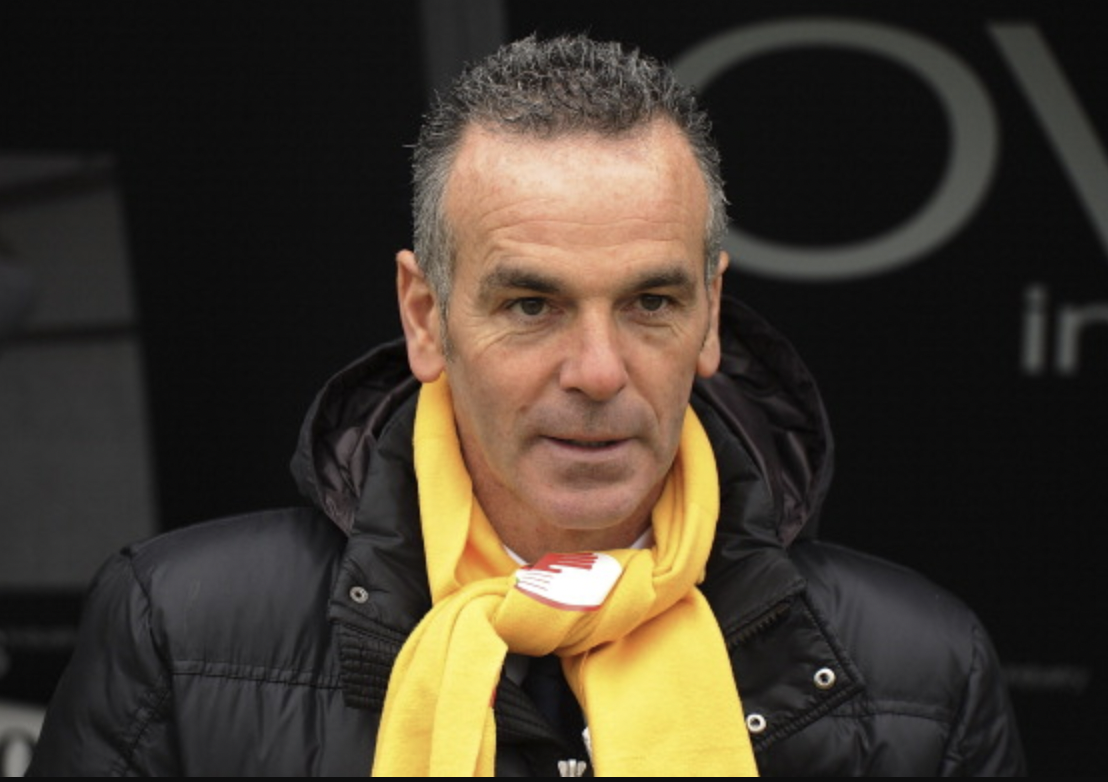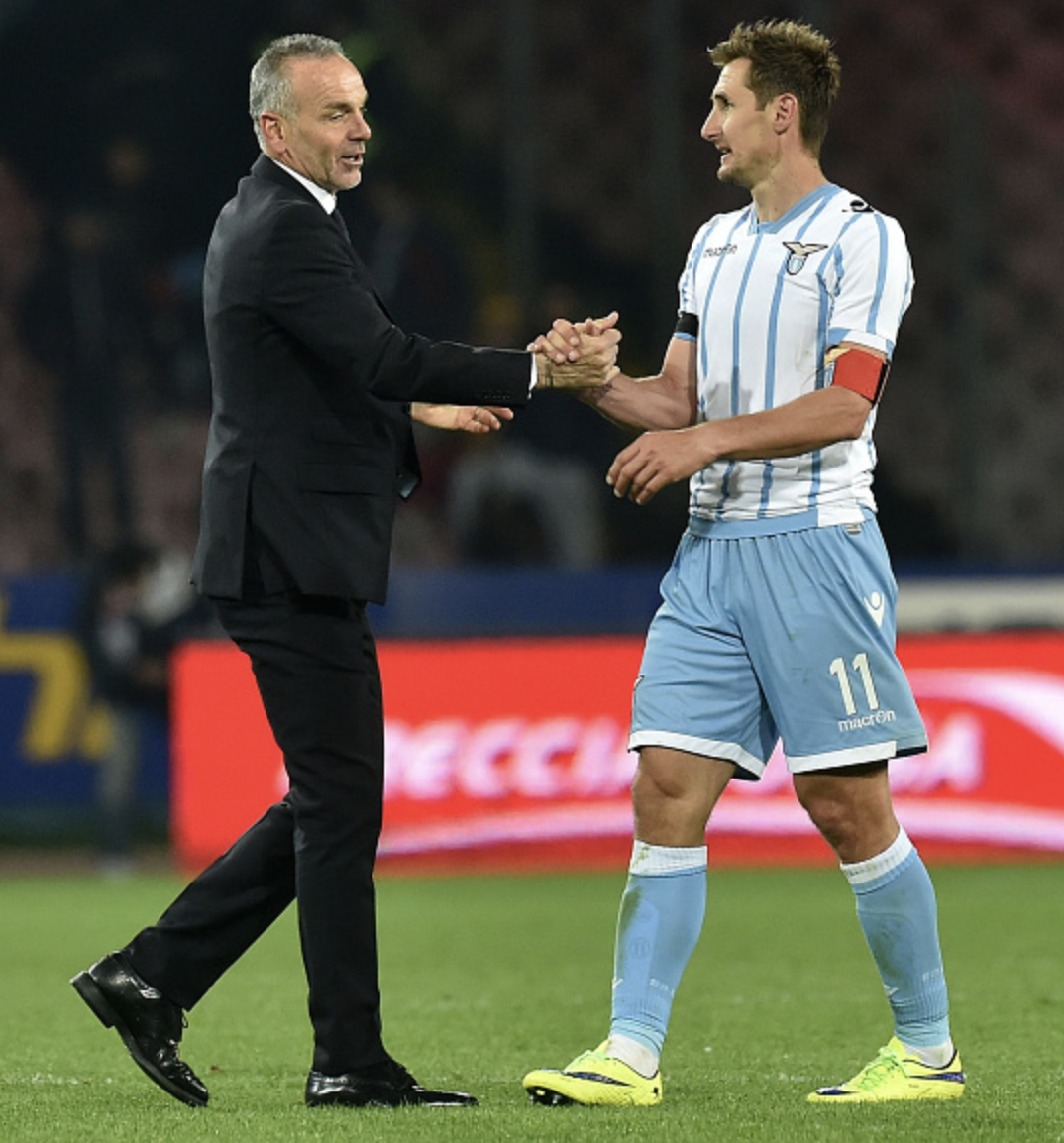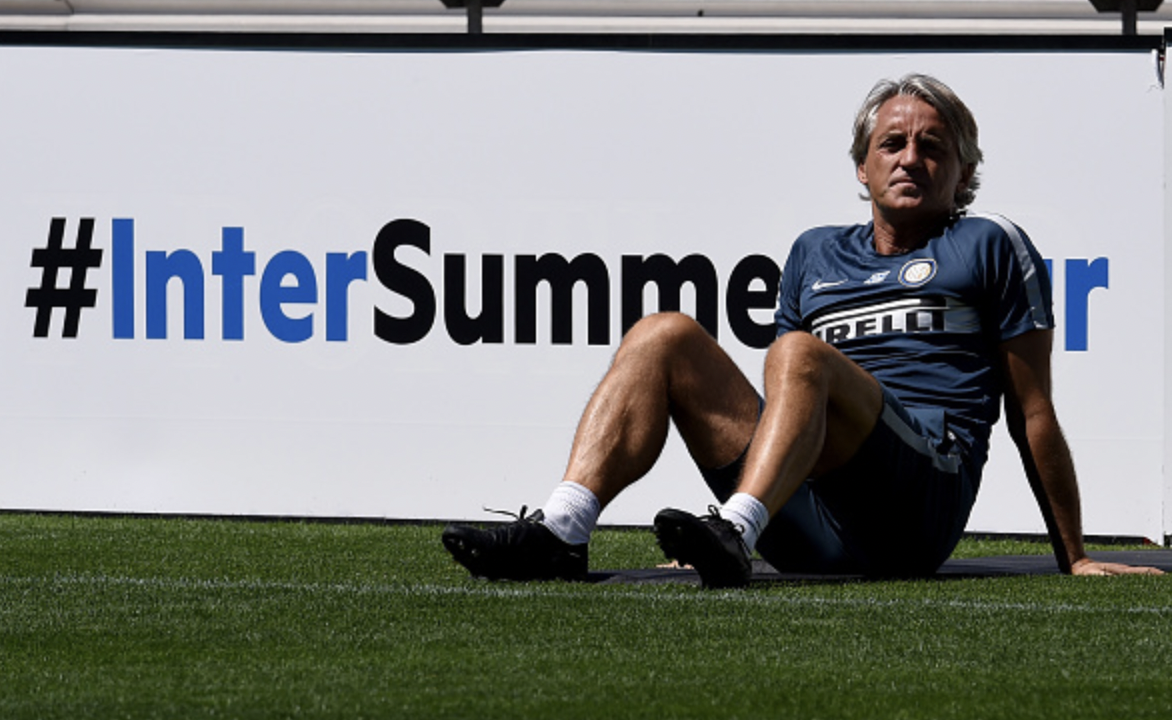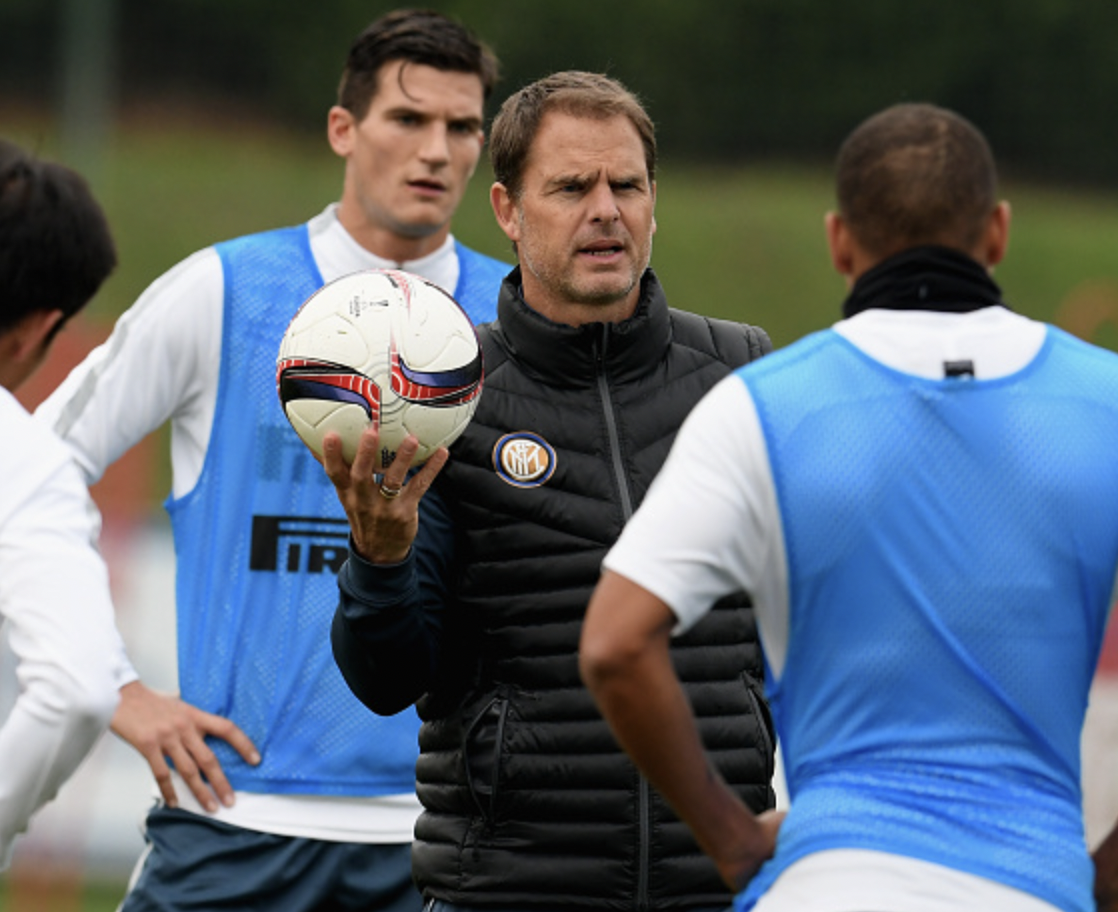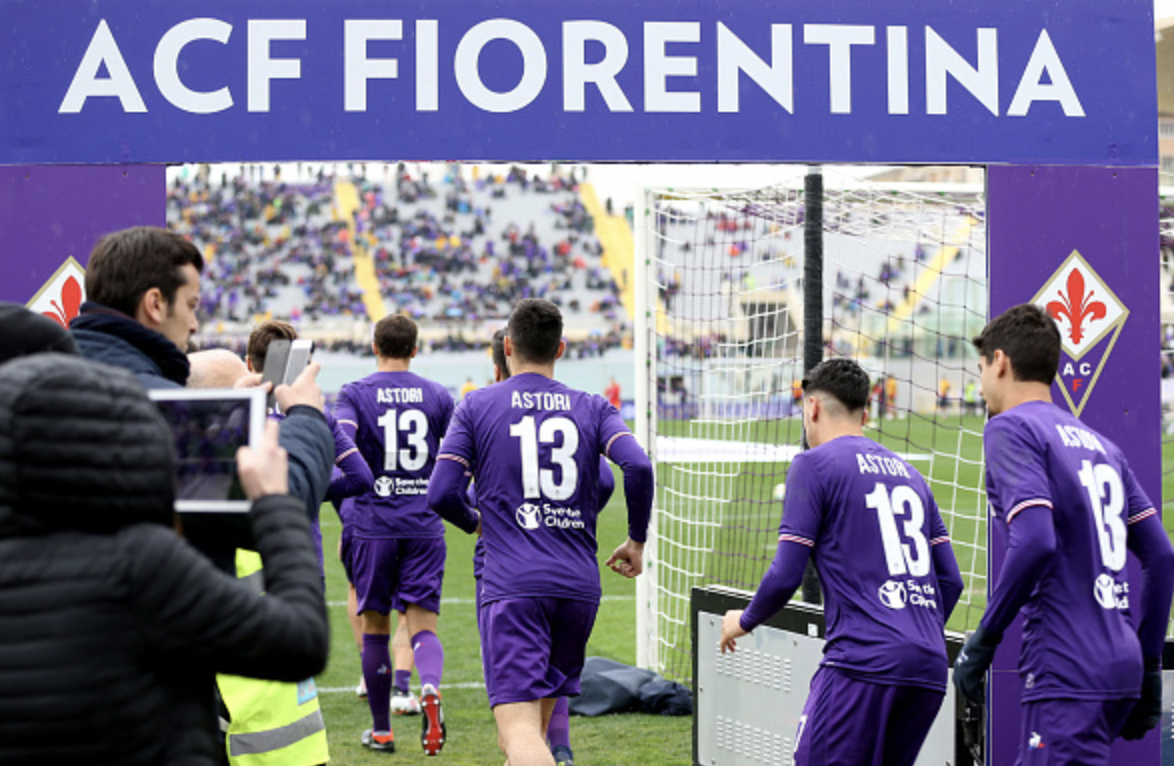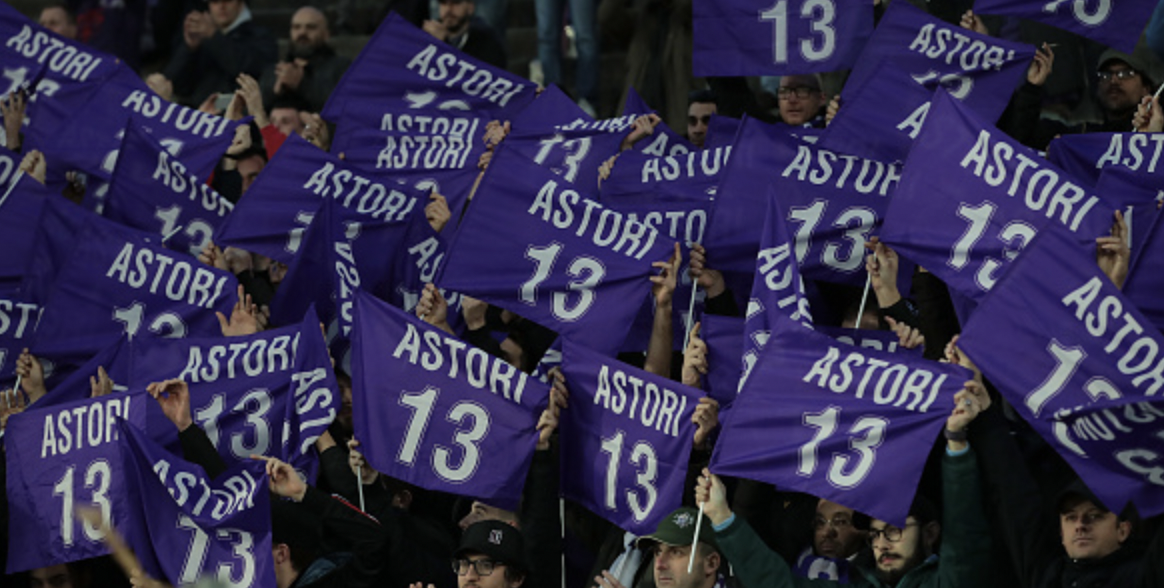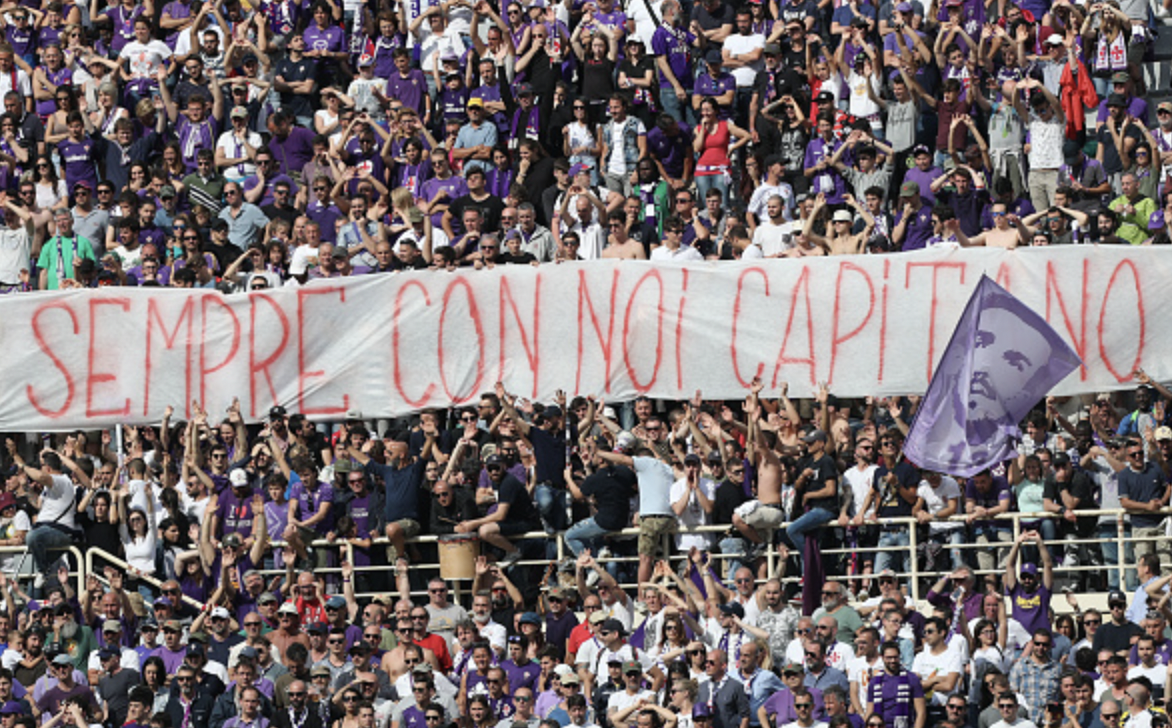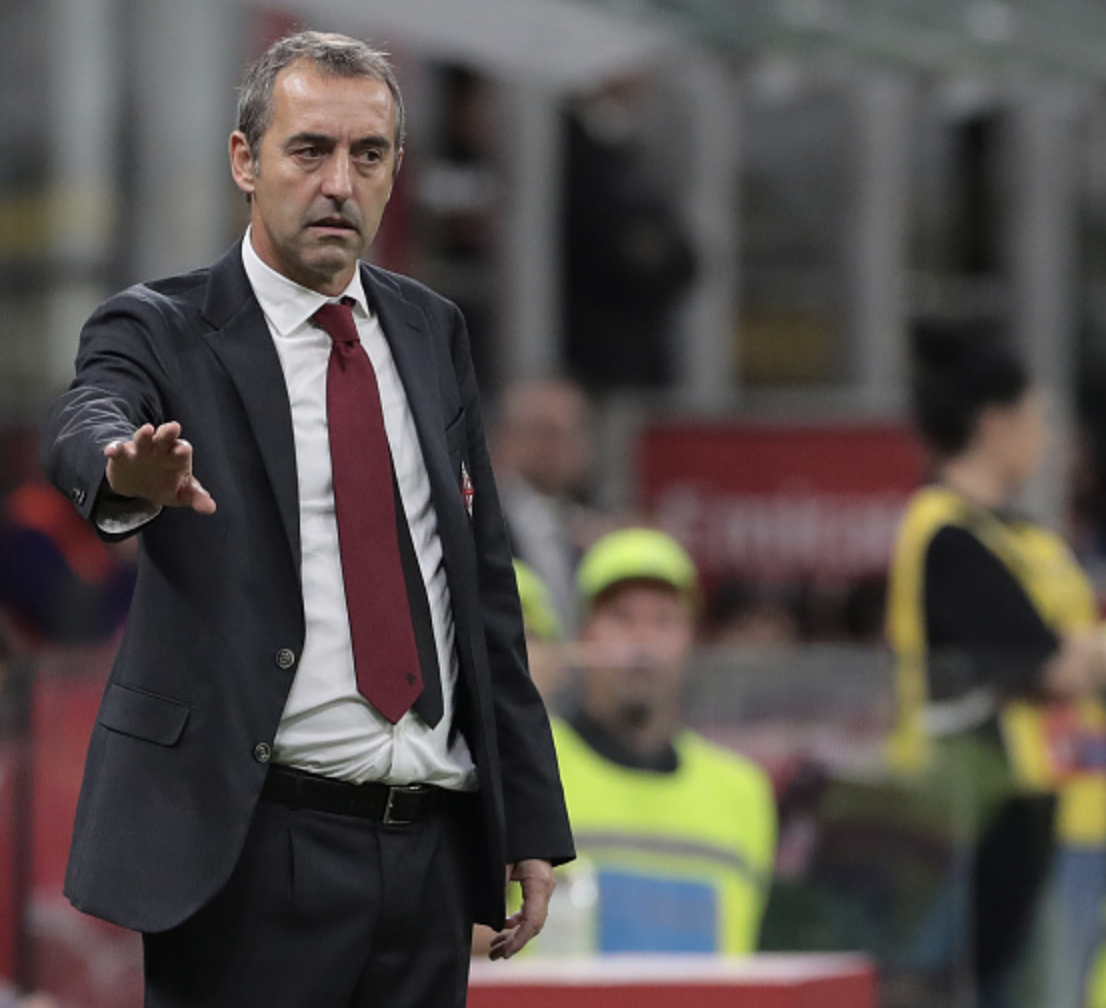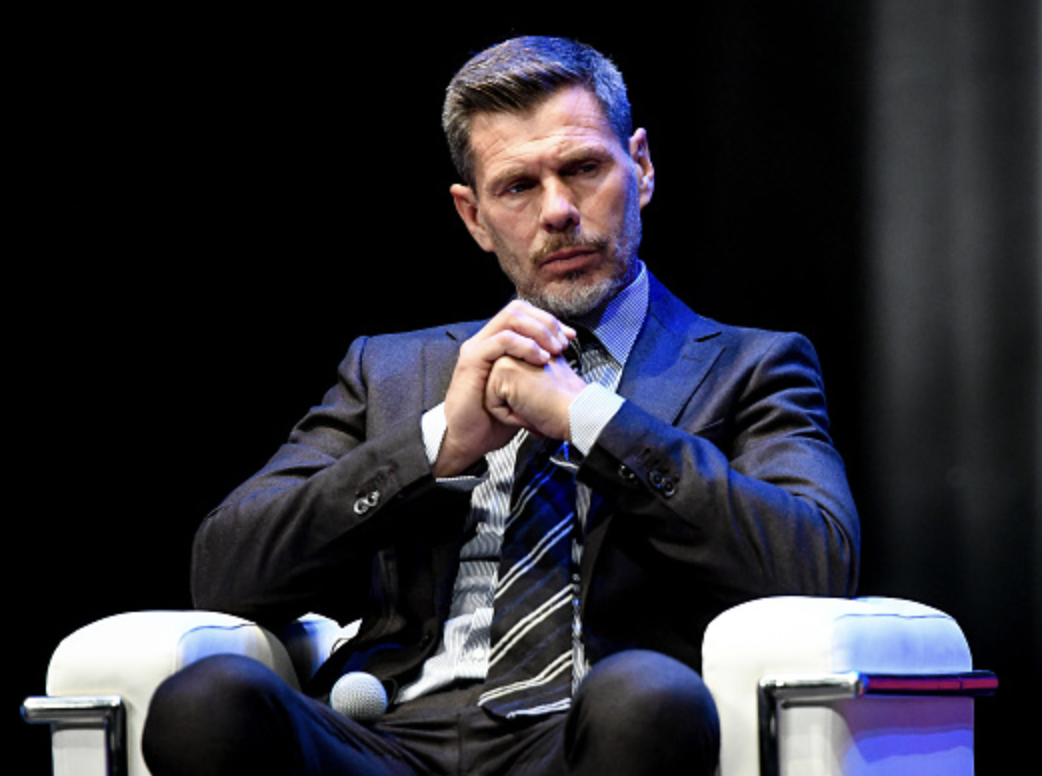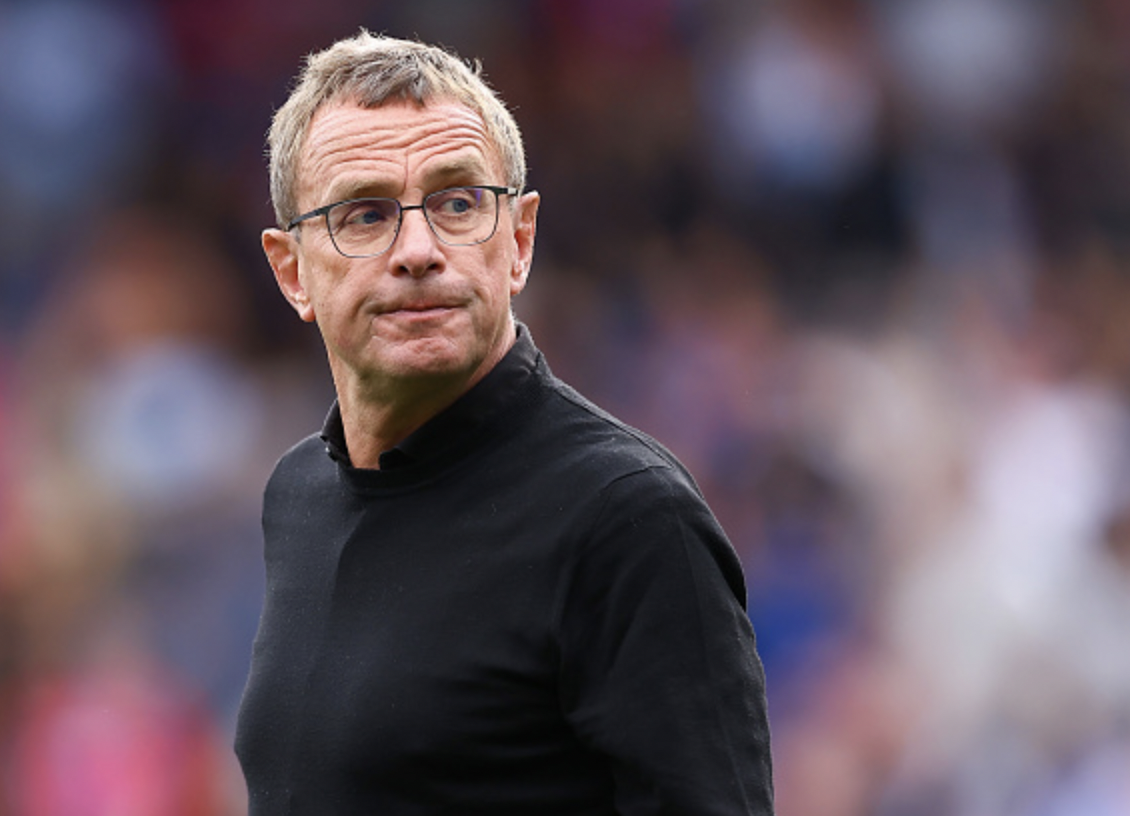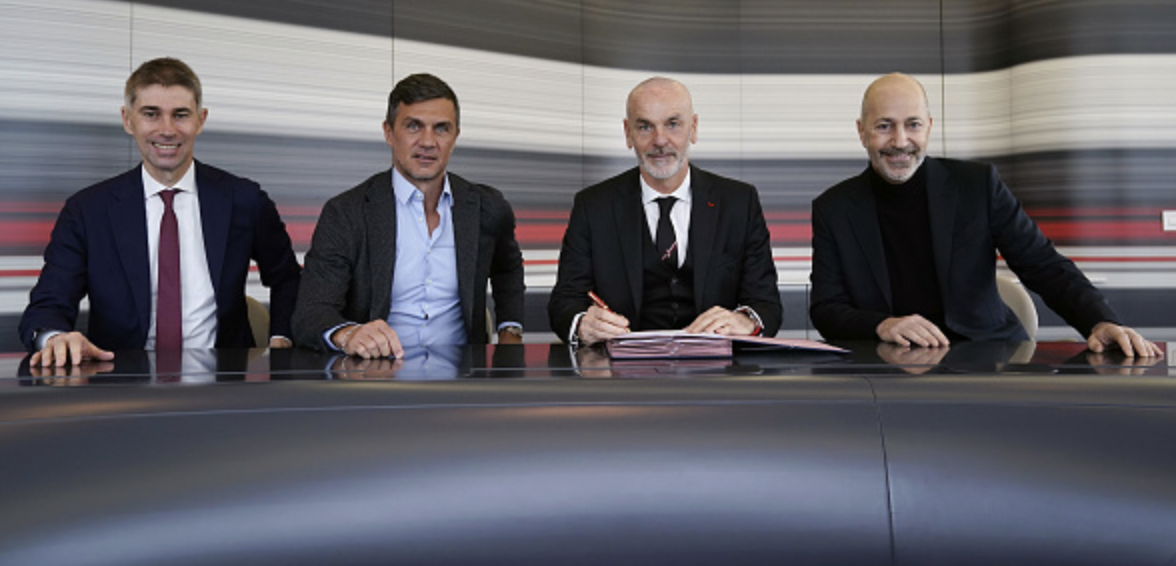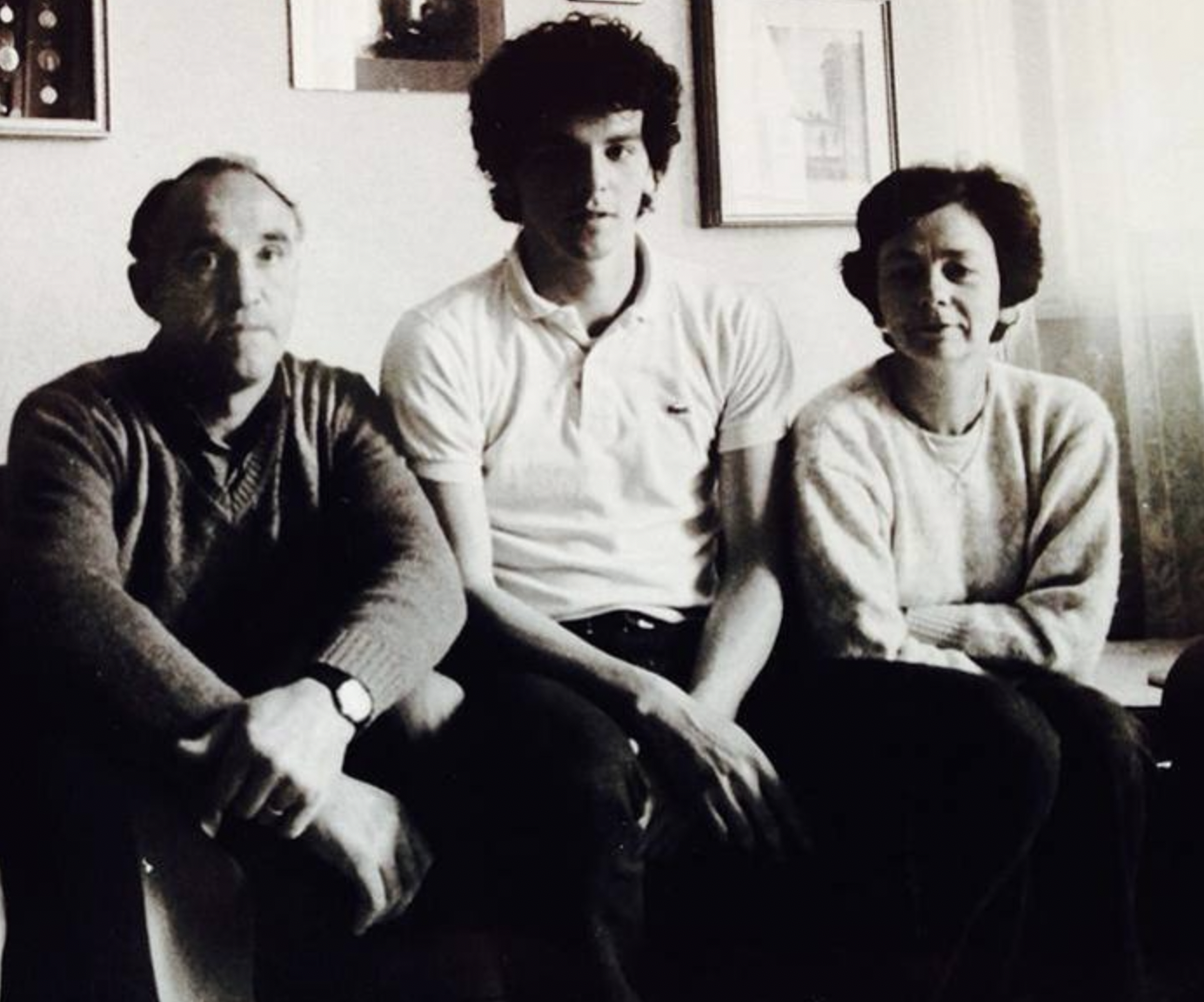Steady Stefano
Coaching Types
For clubs in the European leagues that typically hover in the bottom half of the table, relegation is a perpetual threat that haunts each season. Dropping from the current tier to the one below is devastating in various ways, but especially from a financial aspect. To combat this, teams in such dire straits often call on a breed of coaches who have earned reputations as relegation escape artists. In England, you have Sam Allardyce, Tony Pulis, and Nigel Pearson, while in Italy Davide Ballardini and Davide Nicola have performed miracles for clubs on the brink.
Then there’s another category: the coach known for righting the ship. This is needed at clubs where the situation is somewhat different. Relegation isn’t imminent, but things are stale, morale is low, the team’s form is turgid, and results are inconsistent. Cue the manager with the profile of Stefano Pioli.
Early Reputation
The Serie A clubs Pioli managed early in his career: Chievo, Palermo, and Bologna, typically languished in the part of the table just far enough from the relegation zone, with normally just enough quality to keep them in the top flight. The task was primarily to keep the status quo in place and maintain a positive spirit. As a result, his actual on field work with those sides typically drew minimal attention except maybe from their respective supporters.
With that sense of external indifference, the Italian media, with a play on Mourinho’s self anointed nickname “The Special One”, dubbed Pioli the opposite: “The Normal One”. Over time he has been typecast as a coach who is adept at managing dysfunctional internal situations more so than actual football. However, upon closer inspection, there is substance to Pioli’s tactical approach, as well as his human touch within a squad.
During his 2010/11 stint with Chievo, Pioli showed a sense of innovation that was anything but “normal”. In order to relay his positioning and movement ideas to his players effectively, he became the first coach in Serie A to work with Panasonic, getting 3D recordings of his players in matches and training. In doing so, he managed to explain his instructions using visual context with the players. For a manager viewed as quite monotone, in both his speech and coaching, this was actually quite avant-garde.
Pioli during the Chievo days
Despite such novel ideas, praise of tactical prowess was still reserved for coaches of bigger clubs. Paradoxically, after a few years spent at midlevel sides alleviating the chaos they were synonymous with, it was exactly that issue at some bigger sides that suddenly required Pioli’s expertise. This elevation in his career would increase the recognition of his tactical ability, and his man management skills.
The Seven Sisters
In the 90s, when Serie A was at its peak, a group of seven clubs had all achieved success in both Italy and Europe. As each season commenced, they all had roughly equal odds to win the championship. While they all aren’t at those levels of dominance today, they still retain membership in that group. Juventus, Roma, Lazio, Fiorentina, Parma, Inter, and Milan make up the Seven Sisters; over the past eight years, Pioli has found himself managing four of the seven.
The Eternal City
Back in 2014, things were unsettled at capital city club Lazio. Edy Reja, in his second spell as manager, had failed to secure European qualification. Amplifying matters was the tension between Lazio’s most ardent supporters, the Irriducibili Lazio Ultras, and owner Claudio Lotito. The fans’ displeasure with the ownership’s management of the club resulted in match day boycotts leaving the stands at the Olimpico often barren. Despite Lotito’s attempts to retain his services, Reja resigned and left Lazio without a coach weeks before preseason. Various names were bandied about as replacements, but surprisingly, Pioli was appointed.
In his first of two seasons at Lazio, Pioli achieved a third place finish following two straight years of the club failing to make the top four. In addition to that, his maiden season also saw Lazio reach the Coppa Italia Final, eventually losing to Juventus in extra time. Pioli showed during his spell at Lazio his ability to adjust a team tactically. His predecessor’s style of play was somewhat restrained, while Pioli fluctuated between a 4-3-3 and 4-2-3-1, pushing more attacking football. With this approach, an aging Miroslav Klose in attack scored his second highest goal return in his five year spell at the club. Players like Parolo, de Vrij, Biglia, Keita Balde, and Felipe Anderson also rose in prominence under Pioli’s tutelage.
Of those players, Klose’s comments on Pioli provide insight on the manager’s handling of his squad’s mental state. For example, in an interview with La Gazzetta dello Sport, the German was effusive in his praise stating: “He’s a fantastic man. He has rare human qualities, he is a very honest person. He improves players, it just needs time.” Klose, now working his way up the coaching ranks, turned down a promotion from the Bayern Munich U17’s to U19’s back in 2019. His reasoning for that decision was, “One step after another. You have to be patient, the frenzy is the enemy of the result, you always have to be humble.” This conscious approach to decisions, career, and life is said to be influenced by Pioli.
Pioli (L) and Klose (R) developed a great relationship at Lazio
The Fashion Capital
Towards the end of the 2015/16 season, results turned dour under Pioli, and despite having one year left on his contract with an option for another, a 4-1 battering by Roma in the Derby della Capitale signaled the end of his Lazio reign.
Seven months later, chaos was brewing elsewhere, this time at Inter; Pioli was summoned once again to restore some stability.
Less than a month before the 2016/17 Serie A season began, Frank de Boer was appointed as Inter coach after his predecessor, Mancini, abruptly left his post. Two months prior to the managerial shuffle, the club had also changed ownership. If that wasn’t enough, Inter were unable to register big money summer signing, Gabriel, for European matches, and released Caner Erkin, who just signed that summer. The reason for both? The club was in violation of Financial Fair Play rules over the three previous years. So, yes, it was far from a calm environment. With that backdrop, Inter’s start to the season was an unconvincing 4 wins, 5 losses, and 2 draws leaving them 12th in the table. This, combined with a poor showing in the Europa League, was enough to send de Boer packing.
Mancini left Inter abruptly
De Boer (center) sacked by Inter early on
Bright Start
Pioli hit the ground running winning 12 of his first 17 matches propelling Inter from 12th to 5th in the standings. 5 losses, and 2 draws, in the next 7 left Inter out of the European spots in seventh place with 3 matches left in the season. Despite his impressive start, the club had enough and relieved Pioli of his duties. His spell at Inter was brief, but despite the turmoil at the club, he galvanized the squad and got them to perform well for large stretches. He transformed the negative mentality, and also made tactical adjustments. For instance, he deployed Banega higher up the pitch rather than in his typical central/defensive midfielder role. This change resulted in Banega’s highest goal (6), and second highest assist (6), return, in his 13 years in European football. He also reintegrated Brozovic, who de Boer discarded, and helped him rediscover his form and become an integral part of the side.
Alas, the financial blow resulting from missing out on European qualification was too much for the owners to ignore, and Pioli was sacked.
Tuscany: More Than Football
The summer leading into the 2017/18 season, Pioli resurfaced at another of the Seven Sisters: Fiorentina. He would spend two years at the Tuscan club playing an influential role in molding younger talents like: Chiesa, Milenkovic, Veretout, Simeone, and Vlahovic into key members of the squad. While he came into a club with relative calm for a change, an event at the latter part of his first season would rock Fiorentina. Once again—on a much larger scale than ever before—a critical intervention from Pioli would be required to ensure stability.
Sunday, March 4, 2018, is a date that had a devastating effect on Fiorentina primarily, but also resonated around the football world. While in Udine for an away game against Udinese, Pioli was wrapping up an early breakfast at the hotel when a distressed Alberto Marangon (team manager), and Luca Pengue (team doctor), frantically called him to one of the rooms. Pioli recounted the following moments in an interview with Corriere Fiorentino, “I arrived in front of room number 118 in my pajamas, [goalkeeper Marco] Sportiello was already there. ‘Mister [Coach], Davide is gone’ he said. But I still did not understand. Then, opening the door I saw Maragnon and Pengue crying and Astori there, lying on his bed. It seemed like he was sleeping, but it wasn’t so. The most difficult moment was going around the rest of the rooms to tell the rest of the team what had happened. It was something that I would not wish on anyone.”
Managing While Grieving
Davide Astori, 31 at the time of his passing, was the influential club captain, and Italy international, who was held in high regard by his teammates, manager, peers, and Fiorentina fans. His untimely death, due to an undiagnosed cardiac condition, left the club reeling. Naturally the remaining matches for that weekend were postponed, but the ensuing 7 days involved: a return to training 2 days later, a public funeral, and the next scheduled home fixture against Benevento. Such a loss would be extremely taxing for any side, but for a squad with an average age of 21.9, it was especially debilitating. As Pioli further said in the article, “Initially I feared for my players. On the Tuesday when we restarted, it was hard. So many of our youngsters had not even properly realized what had happened. To get changed, to work, to train without Davide that afternoon created a sense of emptiness in us all.”
Fiorentina players wore the number 13 jersey versus Benevento, following Astor’s passing, to pay respect
Empathy
Pioli became a father figure for the younger players in that period, cultivating a sense of togetherness that unified the team following an event that could have provoked the opposite effect. Regarding the empathy he strives to embody, he told The Guardian, “I do try to look beyond the surface, to move past the value of a player and get through to the person. Even if these are young lads who we would call fortunate, they are still young lads with their own lives, their own emotional triggers, personal ties, difficulties.” Having the wherewithal to approach his players as human beings—not just highly paid individuals—going through a traumatic episode shows the depth Pioli possesses.
The remaining 12 matches of the season saw Fiorentina manage a respectable 7 wins, 5 of which were the immediate matches after Astori’s passing. Pioli was often vulnerable, direct, and open in his press conferences—and with his players—during this delicate moment. In doing so, he became a point of reference: the leader the team desperately needed to navigate such turbulent times.
He would resign towards the end of his second season after some differences with the club owners, but much like Astori, he left an indelible mark on the club, players, and fans. The players present during his spell credit him for the influential effect he had on them not just as a coach, but on a human level. Additionally, the fans, who still commemorate Astori in the 13th minute of home matches because of his jersey number, also periodically sing about Pioli saying, “Pioli uno di noi [Pioli one of us].” Real life issues occurred at Fiorentina that make football seem inconsequential. Pioli showed how empathy helps provide perspective to process, and manage, such circumstances in a healthy manner.
Fiorentina fans still remember Astori fondly
The fans’ message: “Always with us Captain”
Back to San Siro
After leaving Fiorentina at the end of the 2018/19 season, it was a quiet summer for Pioli leading into the next championship with no teams requesting his services. That silence, however, didn’t mean there wasn’t something brewing at one of the Seven Sisters.
AC Milan, one of the more storied and successful sides in Serie A, spent the 2010s looking like a shadow of their former selves on the pitch and administratively. The glory years under former owner, Silvio Berlusconi, were a distant memory after the 2011 Scudetto. The man who bought Milan from Berlusconi in April of 2017, Li Yonghong, was raised eyebrows regarding the authenticity of his wealth. After a series of delayed payments to the hedge fund, Elliott Management, that helped finance his takeover, he went into default in July 2018. Elliott quickly repossessed the club and cleared the debts.
Shortly after the latest ownership change, Milan was banned from European competition in the upcoming 2018/19 season for breaching Financial Fair Play in the three previous seasons. In the following season, Marco Giampaolo was hired as the new manager—the eighth in five years—and was tasked with leading the latest rebuild. The dogmatic coach insisted on implementing his favored 4-3-1-2 formation, despite lacking the adequate personnel, and after 4 early season losses, was sacked 7 matches into the season.
Giampaolo’s spell at Milan was short-lived
#PioliOut
That was the abbreviated version of the soap opera taking place at Milan by October 2019. With the latest “resurgent” cycle already compromised, management needed careful calculation in deciding the replacement. When Pioli was being considered, the fans were in uproar. The higher ups desired stability, someone who knew the league that could develop young players, and would stop the rot that had set in. Of course, Pioli has become apt at addressing each of these requirements so it appeared straightforward. The supporters, however, detested the seemingly uninspired decision, instead wanting a high profile name as they felt Giampaolo was already a costly gamble.
Before Pioli even set foot on the training pitch at Milanello as coach of the team, the hashtag #PioliOut was already trending on Twitter. Despite the fan backlash, the Milan hierarchy moved forward with their choice. Pioli’s response to the supporters? “The fans have the right to criticize, but for me this is a further stimulus to make my work even better.” Yet more poise from the man in the face of adversity. That said, his first 19 matches resulted in 7 wins, 6 losses, and 6 draws; if he wasn’t on borrowed time already, these mediocre results virtually assured it.
COVID Lockdown
When the COVID pandemic and lockdown occurred, the sheer magnitude of such a situation has never been confronted by any coach in modern history. Pioli immediately showed his consciousness towards his players once again, deeming it necessary to give them space, and a full two weeks of silence on football matters. As he told Sky Italia in an interview, “We spoke every now and then, but we didn’t stress them out.” Even after reuniting for sessions, initially through Zoom, it was primarily about the mental state everyone was in considering the circumstances. Following that, they held an open discussion on what the collective objective was going forward, and thirdly, how they could unite and reach their target.
Restart
Play resumed in June 2020, with the first match being the second leg of the Coppa Italia semifinal against Juventus. It would end 0-0, meaning that the 1-1 result from the first leg saw Juventus advance on away goals. There was a marked improvement, however, with the display from Pioli’s side. Despite going down a man early in the match, the players showed grit and a collective spirit unlike the complacency witnessed previously. The effort in that match didn’t flatter to deceive, as the remaining 12 matches of the season that followed would end up with 9 victories and 3 draws.
The goals for, and against, record was 35 and 12 respectively, meaning positive results were coupled with offensive and defensive dominance. Players that were relegated to the bench during the first half of the season, like Rebic, were rejuvenated by Pioli. Others, who were initially played out of position under Giampaolo and struggled to find consistency such as: Bennacer, Kessie, Hernandez, Calabria, and Calhanoglu, were all transformed by the coach in the final stretch. Slightly before, and during that run of matches, however, parts of management were surreptitiously planning a personnel change.
Clash of Directors
Going back a few months to March of 2020, the same week the COVID lockdown was instituted, a falling out occurred amongst the club hierarchy. Zvonimir Boban (Chief Football Officer) discovered that Ivan Gazidis (Chief Executive Officer) had held secret talks with Ralf Rangnick about replacing Pioli, and also occupying a director of sport role. Boban publicly voiced his discontent with Gazidis’s approach in a Gazzetta dello Sport interview, taking umbrage with the fact that the discussions weren’t mentioned to him, or Paolo Maldini (Technical Area Director).
Boban revealed the tensions behind the scenes in his Gazzetta interview
Boban was subsequently fired for his public comments, but the secret tapping up was no longer obscured—especially from Pioli. Despite the three month lockdown pause, the rumors persisted, and gathered momentum once play resumed.
Due to the backlog of matches, the frequency of games being played was roughly one every 3 to 5 days. As a result, Pioli was holding pre and post match conferences at the same rate. The discussions were seldom about the tactical switch he made from Giampaolo’s forced 4-3-1-2, to a 4-3-3, and then eventually to his preferred 4-2-3-1, which brought out the best in the players mentioned earlier. The exchanges with the media also didn’t revolve around the entertaining style of play earning win after win. Instead, he fielded a barrage of questions about his future with Rangnick’s takeover supposedly being a formality. Such things aren’t atypical when the team’s form is lackluster, but the record from Pioli’s side post lockdown demanded the opposite from media. This duress he was under wasn’t purely the media’s fault, on some level it was also foisted on him by the club. After all, since the restart, Milan could boast the following:
Most goals in Europe’s top five leagues (35)
Only unbeaten team in Serie A through the end of the season
Highest point return in Seria A (30)
Mindfulness and Meritocracy
A lesser person, with a lack of self understanding and mental wellness, may have reacted to this speculation displaying their displeasure, and many would sympathize. Pioli, on the other hand, responded stoically. Each time the matter was raised by the press, he would calmly say he was keeping his head down, focusing on the next match and how to get the best from his players.
A common reply he would give the media was that Gazidis had told him no decisions had been made yet regarding his position, or any replacements; things would be sorted at the end of the season based on results. Reports suggested talks with Rangnick were advanced, and it made one question whether Pioli actually believed what he was saying about Gazidis, or whether he was just adept at politicking. He never took the media’s bait to provide any soundbites, he just remained focused and present in the moment.
As the wins accumulated under Pioli, it became apparent that Gazidis was facing an increasingly complex situation. The CEO wasn’t helped when Rangnick himself began conducting interviews intimating he was in fact gearing up for the Milan job, even commenting on player profiles he preferred for his teams. It appeared more likely than not that Gazidis had in fact been telling Pioli one thing, while he orchestrated another.
Rangnick seemed to be edging closer to Milan
Vindication
When you choose to adopt Pioli’s approach: purely focusing on controlling what you can, then you’re left in a relative state of calm. Pioli’s serene demeanor wasn’t disingenuous; his display of mindfulness generated increased support for him from his players, and ironically, the fans that initially took to social media to protest his appointment. This swell of enthusiasm, in tandem with the undeniable trajectory of positive results, eventually caused Gazidis to buckle. Prior to the Sassuolo match in July 2020–nine matches and six wins after the restart—murmurings grew louder that Milan had backed off Rangnick, and would in fact confirm Pioli. By the time the match concluded with yet another victory, all was confirmed; Pioli would remain as coach, and was also rewarded a two year contract extension.
Witnessing someone confront adversity the way Pioli did—in football or otherwise—with such mental maturity and awareness, deserves high praise. Equally pleasing, is the recognition of his conduct, and the tangible results it provided, being validated commensurately. Of course a key component of mindfulness is focusing on the present moment. While doing this work, you endeavor to silence the external noise and seek clarity internally. Nonetheless, receiving positive external reinforcements for his efforts, like Pioli did from Milan, makes the practice more fulfilling.
Left to right: Massara, Maldini, Pioli, and Gazidis attend the signing of Pioli’s contract extension
Value Added
Under Pioli, Milan’s squad value has risen from €404 million to €480 million in just over two years. That initial figure was already somewhat inflated due to the excessive 37 player squad. The team has since been trimmed down to 27, but the value still increased due to the improved form.
This uptick in performance levels was partially due to more innovation from Pioli and his staff. Similar to his inclusion of technology while managing Chievo 10 years prior, he now utilizes drones to record training sessions to provide an expansive vantage point when analyzing the sessions. Additionally, he and his staff, which includes his son Gianmarco, developed an app to install on the players’ phones that shares analysis from the drone footage, as well as opposing teams. The players have been receptive and engaged with this approach, which has yielded positive results.
Another prime example of Pioli’s ability to enhance young players—as he showed during his time at Fiorentina—has been the transformation of Rafael Leao. The Portuguese winger possesses an abundance of talent, but was far too inconsistent and indifferent during matches since joining. Pioli has taken him under his wing and constantly showed his support during interviews, and in training, rather than marginalize him for his fluctuating form. During one match, Pioli was even seen gesticulating for Leao to smile and enjoy his football. In the clip below, Pioli takes time during training to pull Leao aside and give him some special pointers to improve his performances:
After occasional flashes of brilliance in his first two seasons, he has come into his own in the third, scoring and assisting more, and contributing defensively. Such improvements saw Leao finish as the Serie A MVP for the 2021/22 season, and his value has since increased from the €29 million he was signed for, to an impressive €55 million. In congruence with their rise in value, players like: Leao, Hernandez, Tonali, Saelemaekers, Calabria, and Tomori have also earned international call ups due to the impressive form Pioli has gleaned from them.
Present
The 2020/21 season would see a confirmation of the form shown in those manic two months post lockdown. Milan would lead the Serie A table—for the first time in almost a decade—from round 4 to 21. Eventually they would lose steam, however, conceding first place to a more experienced Inter side who became eventual champions. The second place finish for Milan did mean direct qualification to the Champions League for the first time in nine years.
In 2021/22 Milan fluctuated between first, second, and third, throughout the season remaining among the main protagonists. After years of limbo around mid table lacking identity, the team now had a clear tactical structure with multiple players realizing their best form thanks to Pioli. As the second half of the season came around, unlike the prior year, the team didn’t struggle to keep up at the top with Inter and Napoli.
As the final month of the championship approached, three became two, and it was a dual between the two Milanese sides, or i Cugini (the cousins), as they are known in Italy. Milan would put in assured performances in the final four rounds to maintain their two point lead at the top, and secure the team’s 19th league title—the first in 11 years. This accomplishment was no small feat especially when you compare Milan’s €100M per year wage bill with that of the other winners in Europe’s top five leagues:
Paris St. Germain - €470M
Real Madrid - €401M
Manchester City - €258M
Bayern Munich - €192M
This was seismic for the club, the Rossoneri side of Milan, and certainly for Pioli’s reputation and credibility in the game. It has all come full circle as the #Pioliout hashtag that welcomed him, has now morphed into the 'Pioli’s on fire’ song that is constantly heard from the Milan fans.
Lasting Impressions
After a subdued start to his managerial career, Pioli has steadily risen through the ranks and in influence. He’s been critical to Milan’s domestic league conquest, as well as Champions League return, resulting in one of Europe’s sleeping giants regaining relevance. A recent contract extension at Milan confirms him until 2023 with an option for one more year. Former great coaches like Sacchi and Capello have been complimentary of his tactical nous, a clear indication that he is no longer viewed as only a “stabilizer”.
While his on field exploits have gradually earned him deserved praise and acknowledgement, his approach towards life and career have been noteworthy. His impact on players from club to club has been evident due to the mental maturity displayed while coaching them through adversity.
Until 2020, no manager had ever faced the complexities of a global pandemic and all that it entails: the psychological effect of a lockdown, catching COVID, quarantining, playing in empty stadiums etc. Numerous accounts from Milan players and management indicate that Pioli’s approach throughout was stellar. The Astori incident that meant the passing of a key member, and captain, of your team midseason is another experience few managers besides Pioli have contended with, yet he also managed that admirably.
Pioli, and His Toughest Critic
Pioli has faced a fair bit in his ongoing managerial career, but the mental approach in handling each challenge should garner respect. That said, winning trophies will only further enhance his on field status, and ensure he is no longer only viewed as “The Normal One”. Of course, until the recent Scudetto, he didn’t need reminding about his lack of silverware, confirming to The Guardian his own mother routinely handled that. Periodically, she was known to tell him that after all his years as a manager he still hadn’t won anything. On the critique, he said, “And it’s right that she does [remind him]. In every family there is the hard one and the soft one. My father was the softer one, my mum is the very tough one. That’s how it should be. That’s how you get the most out of someone.” It appears the desired effect was eventually achieved, and the first call he made after the final match was to his happy mother.
A young Pioli (C) with his “softer” father and “tougher” mother
He has certainly drawn from each of his parents’ styles in his coaching. He now has a major trophy on his resume, but he had already accomplished something else of value: implementing sound mental health practices in his, and his players’ lives. The resulting intangibles of that are surely a legacy he, and his mother, can take great pride in.
Mental health terms referenced above:
Mindfulness - a mental state achieved by focusing one’s awareness on the present moment, while calmly acknowledging and accepting one’s feelings, thoughts, and bodily sensations, used as a therapeutic technique (Oxford Languages)
Consciousness - an organism’s awareness of something either internal or external to itself, the quality or state of being aware especially of something (e.g., emotions and memories) within oneself (American Psychological Association)
Empathy - understanding a person from his or her frame of reference rather than one’s own (American Psychological Association)
All statistics above are from: www.fbref.com and www.statsbomb.com


